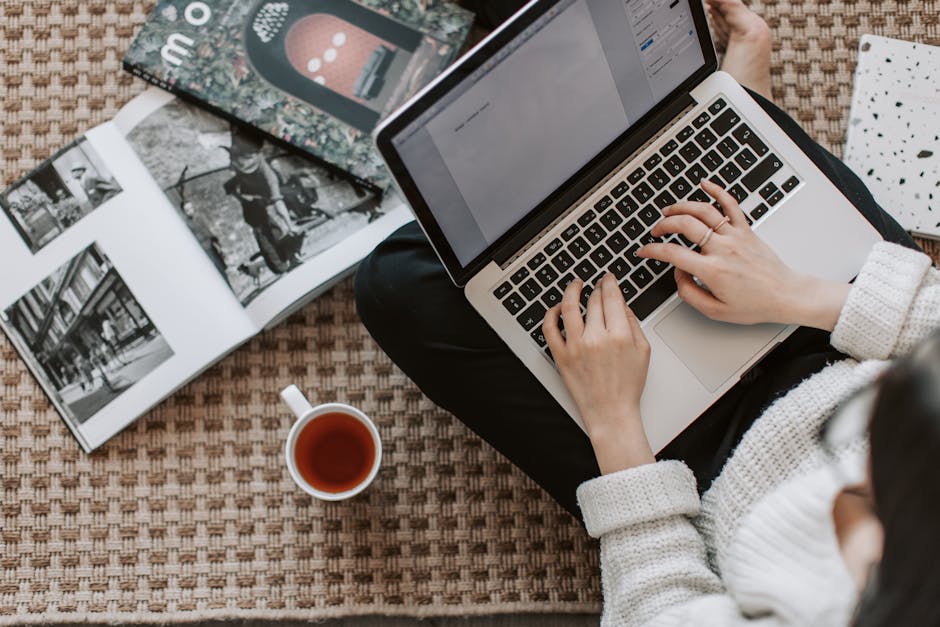Stress and anxiety are common experiences for most people. In fact, 70% of adults in the United States say they feel stress or anxiety every day. With the hustle and bustle of everyday life, it’s easy to forget about self-care. However, it’s important to understand that taking care of your mental health is just as important as your physical health. Here are 10 ways to manage stress and anxiety every day to relieve anxiety.
A Brief Explanation of Stress and Anxiety
Stress and anxiety are two sides of the same coin. Stress is a response to a threat in a situation, while anxiety is a reaction to the stress. Whether in good times or bad, most of us experience stress and anxiety in different ways. Whether it’s the pressure of a job interview or the expectations of a demanding boss, stress and anxiety can creep up at any moment.
While stress and anxiety share many of the same emotional and physical symptoms – unease, tension, headaches, high blood pressure, and loss of sleep – they have very different origins. Generally, stress is a response to an external cause, such as a tight deadline at work or an argument with a friend, and goes away once the situation has been resolved. Anxiety, on the other hand, is internal, long-lasting, and often out of proportion with the actual level of threat posed by the situation.
It’s important to manage stress and anxiety because if left unchecked, they can lead to serious health problems such as heart disease, high blood pressure, diabetes, and other illnesses, including mental disorders such as depression and anxiety disorders.

Photo by Vlada Karpovich on Pexels
Practice Deep Breathing Techniques
Deep breathing is a simple yet powerful relaxation technique. It’s easy to learn, can be practiced almost anywhere, and provides a quick way to get your stress levels in check. Deep breathing is the cornerstone of many other relaxation practices, too, and can be combined with other relaxing elements such as aromatherapy and music.
Here’s how to do it: Sit comfortably with your back straight. Put one hand on your chest and the other on your stomach. Breathe in through your nose. The hand on your stomach should rise. The hand on your chest should move very little. Exhale through your mouth, pushing out as much air as you can while contracting your abdominal muscles. The hand on your stomach should move in as you exhale, but your other hand should move very little. Continue to breathe in through your nose and out through your mouth. Try to inhale enough so that your lower abdomen rises and falls. Count slowly as you exhale.
Deep breathing counters the effects of stress by slowing the heart rate and lowering blood pressure. The next time you’re feeling anxious, try this simple breathing exercise. It can be done anywhere and is an excellent way to reduce anxiety fear and stress.
Engage in Regular Physical Exercise
Physical activity plays a key role in reducing and preventing the effects of stress. Regular exercise can boost your mood and serve as a distraction from worries, allowing you to break out of the cycle of negative thoughts that feed stress and anxiety. It also helps you to maintain a healthy lifestyle, which is another essential way to reduce anxiety.
Research shows that regular exercise works as well as medication for some people to reduce symptoms of anxiety and depression, and the effects can be long-lasting. One vigorous exercise session can help alleviate symptoms for hours, and a regular schedule may significantly reduce them over time.
It’s not just for the bodybuilders and marathon runners. Any form of exercise can help. Even a short walk around the block can make a big difference. For maximum stress relief, try to get at least 30 minutes of heart-pumping activity on most days. If it’s easier to fit into your schedule, break up the activity into two or three shorter segments.

Photo by cottonbro studio on Pexels
Practice Mindfulness and Meditation
Mindfulness is a form of meditation that asks you to focus your mind on the present. This can help you reduce the worrying thoughts that lead to stress and anxiety. Studies have shown that mindfulness helps reduce anxiety and depression. Mindfulness can also improve physical health by improving sleep and lowering blood pressure.
Meditation, like mindfulness, is a practice that can help reduce anxiety over time. While there are many different forms of meditation, they all involve a relaxation technique, such as deep breathing, and a quiet setting, such as a quiet room or outdoor spot. Some forms of meditation also involve focusing on a mantra or a calming word or phrase.
Practicing mindfulness and meditation can help you to stay calm and relaxed in everyday life and can also help you to manage the symptoms of anxiety disorders. They can also help you to stay focused on the present, which can help you to let go of negative thoughts that may be causing stress and anxiety.
Maintain a Healthy Lifestyle
A healthy lifestyle can help to reduce anxiety. Eating a balanced diet, getting regular exercise, and getting enough sleep can help to keep your body and mind healthy. Avoiding caffeine, alcohol, and nicotine can also help to reduce anxiety.
Getting enough sleep is crucial for your mental health. It’s important to make sure you’re getting enough sleep each night. Lack of sleep can exacerbate anxious thoughts and feelings, so try to get seven to nine hours of quality sleep a night.
If you struggle with anxiety, you may also struggle with negative thoughts. It’s important to remember that your thoughts are not reality. Changing your thought patterns can improve your life and reduce your anxiety. Cognitive-behavioral therapy can help you to identify and change negative thought patterns that lead to anxiety.

Photo by Christina Morillo on Pexels
Seek Support from Others
Support from others can help you manage stress and anxiety. Talk to someone who you trust about your worries and fears. It can be a friend, family member, or mental health professional. Talking about your thoughts and feelings can help you to feel better and reduce your anxiety. You can also join a support group or talk to a counselor or therapist.
Professional help can be very beneficial if your anxiety is severe or is causing distress or disruption in your life. A mental health professional can provide a safe and supportive environment for you to express your fears and worries. They can also teach you effective ways to manage stress and anxiety.
Remember, it’s okay to ask for help. If you’re feeling overwhelmed by stress and anxiety, reach out to someone. You don’t have to go through this alone. There are many resources available to help you manage stress and anxiety.
Create a Relaxation Routine
Creating a relaxation routine can help you to reduce stress and anxiety. This can include activities such as reading a book, taking a warm bath, listening to soothing music, or practicing mindfulness and meditation. Try to do something each day that relaxes you and helps you to unwind and release tension.
It’s also important to take breaks throughout the day. If you’re feeling overwhelmed or stressed, take a few minutes to relax and breathe deeply. Even a few minutes of relaxation can help to reduce stress and anxiety.
Remember, it’s okay to take time for yourself. Taking care of your mental health is just as important as taking care of your physical health. If you’re feeling overwhelmed by stress and anxiety, it’s important to take steps to reduce these feelings and improve your overall well-being.
Limit Exposure to Stressful Triggers
Stressful triggers can increase feelings of anxiety and stress. It’s important to identify these triggers and take steps to limit your exposure to them. This can include avoiding certain people or situations, or taking steps to manage your reaction to these triggers.
If you can’t avoid a stressful situation, try to find ways to manage your stress and anxiety. This can include practicing deep breathing, mindfulness, or other relaxation techniques. It can also include seeking support from others or talking to a mental health professional.
Remember, it’s okay to say no. If a certain situation or person is causing you stress or anxiety, it’s okay to limit your interaction with them. You have to take care of your mental health, and that might mean distancing yourself from certain people or situations.
Practice Time Management
Effective time management can help to reduce stress and anxiety. By managing your time effectively, you can reduce your workload and avoid feeling overwhelmed. This can include prioritizing tasks, setting goals, and breaking tasks down into manageable steps.
It’s also important to take breaks throughout the day. Taking a break can help to refresh your mind and reduce stress. Try to take a few minutes every hour to relax and breathe deeply.
Remember, it’s okay to ask for help. If you’re feeling overwhelmed by your workload, talk to your supervisor or a trusted colleague. They may be able to provide you with support or resources to help you manage your workload and reduce stress and anxiety.
Cultivate Positive Thinking
Positive thinking can help to reduce stress and anxiety. Try to focus on the positive aspects of your life and avoid dwelling on negative thoughts. It can be helpful to practice gratitude and focus on the things that you are thankful for. This can help to shift your focus from negative thoughts to positive ones.
It’s also important to challenge negative thinking. If you notice that you’re dwelling on negative thoughts, try to challenge these thoughts and replace them with more positive ones. This can take practice, but over time, you can become more aware of your negative thinking patterns and work to change them.
Remember, it’s okay to have negative thoughts. It’s a normal part of life. However, if you find that negative thoughts are causing you stress or anxiety, it’s important to take steps to manage these thoughts and focus on more positive ones.
Conclusion
Managing stress and anxiety is a journey, not a destination. It takes time, patience, and practice. Remember, it’s okay to ask for help and to take care of yourself. By implementing these 10 ways to manage stress and anxiety every day, you can start to feel better and improve your overall well-being.
Remember, it’s okay to have bad days. Everyone does. It’s important to remember that you’re not alone and that there are resources available to help you manage stress and anxiety. Don’t be afraid to reach out to others for support.
Finally, remember to take care of yourself. Eat a healthy diet, get regular exercise, get plenty of sleep, and take time each day to relax and unwind. By taking care of your physical health, you can improve your mental health and reduce your stress and anxiety.
Remember, every day is a new opportunity to take care of your mental health and reduce your stress and anxiety. By implementing these strategies, you can start to feel better and improve your overall well-being.
Here are some additional resources to help you manage social anxiety. And here are some effective learning strategies that can help you manage stress and anxiety related to school or work.
Here are some self-care strategies that can help you manage stress and anxiety. And here are some tips on maintaining physical health to help manage stress and anxiety.
Here are some task management strategies that can help you manage stress and anxiety. And here are some tips on building self-confidence to help manage stress and anxiety.
Here are some tips on being resourceful to help manage stress and anxiety. And here are some tips on maintaining balance to help manage stress and anxiety.
Here are some biofeedback techniques that can help manage stress and anxiety. And here are some resources for managing depression, which can often co-occur with anxiety.
Here are some natural ways to relieve panic attacks, which can be a symptom of anxiety. And here are some tips on gardening, a relaxing hobby that can help manage stress and anxiety.
Here are some resources on understanding depression, which can often co-occur with anxiety. And here are some breathing exercises that can help manage stress and anxiety.
Here are some tips on building stamina, which can help manage stress and anxiety. And here are some tips on improving attention to detail, which can help manage stress and anxiety.
Remember, every day is a new opportunity to take care of your mental health and reduce your stress and anxiety. By implementing these strategies, you can start to feel better and improve your overall well-being.
Tags: #StressManagement, #AnxietyRelief, #SelfCare, #Mindfulness, #StressRelief, #MentalHealth, #Wellness, #SelfLove



